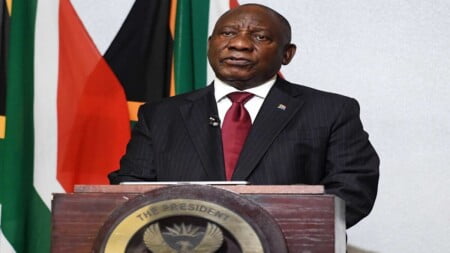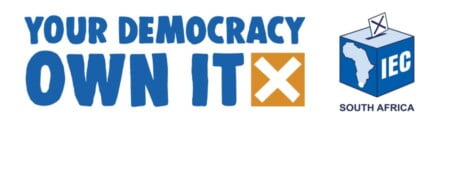As the Election Results 2024 continue to roll in across South Africa, the social media landscape is buzzing with diverse opinions and heated debates. Provinces like KwaZulu-Natal (KZN) are being praised for their stand in voting for change, while the Eastern Cape sees the African National Congress (ANC) maintaining a strong lead despite the region’s struggles with poverty and unemployment. This article explores the impact of public commentary on social media on voter engagement and highlights the pressing need for enhanced voter education in South Africa.
Latest Election Results at They Stand
The Election Results 2024 have been closely followed by the public, with various provinces showcasing different political preferences. As the counting progresses, here are the latest updates based on the IEC Results Dashboard:
- KwaZulu-Natal (KZN) Election Results: In KZN, there has been a significant shift towards opposition parties. With the MK Party taking over the lead from the IFP and the ANC. Proving that people in KZN indeed want to see change.
- Eastern Cape Election Results: The Eastern Cape remains a stronghold for the ANC, despite ongoing issues such as high unemployment and poverty. The ANC is leading with a comfortable margin, reflecting the party’s deep-rooted support in the region. However, there is also noticeable support for smaller parties like the United Democratic Movement (UDM) and the EFF, which suggests some level of dissent.
- Gauteng Election Results: Gauteng is proving to be a battleground with close competition between the ANC, DA, and EFF. The urban electorate is divided, with significant votes going to both the ruling party and the opposition, highlighting the province’s dynamic political landscape.
- Western Cape Election Results: The DA is maintaining its strong presence in the Western Cape, with the ANC trailing behind. The province continues to support the DA’s governance, which many voters associate with better service delivery and effective administration.
The Role of Social Media in Shaping Public Opinion
The current Election Results 2024 have sparked a range of reactions on social media. In KZN, many users are applauding the electorate for voting in favor of change, which they believe signifies a desire for new leadership and better governance. This sentiment is often expressed through positive hashtags, supportive comments, and shares of news articles that highlight the shift in political dynamics.
Conversely, in the Eastern Cape, the continued dominance of the ANC has led to frustration and criticism from those who feel that the party has not adequately addressed issues such as poverty and unemployment. Social media is filled with posts expressing discontent, questioning the loyalty to a party that hasn’t delivered on its promises, and calling for accountability.
The Influence of Social Media on Voter Engagement
Social media can significantly influence voter engagement in several ways:
- Information Dissemination: Social media provides a platform for sharing news and information about candidates, parties, and election results. This helps keep voters informed and can influence their perceptions and decisions.
- Mobilization and Activism: Platforms like Twitter and Facebook can be used to organize rallies, encourage voter registration, and promote voting. Hashtags and viral campaigns can mobilize large groups of people and encourage political participation.
- Echo Chambers and Misinformation: While social media can inform, it can also create echo chambers where users are only exposed to views that reinforce their own. Additionally, the spread of misinformation and fake news can mislead voters and create confusion about the electoral process and outcomes.
The Case of KwaZulu-Natal and the Eastern Cape
KwaZulu-Natal: A Vote for Change
In KZN, the electorate’s choice to support parties other than the ANC is seen as a significant shift. Social media users from the region have expressed hope that this change will bring about better governance, improved service delivery, and a focus on addressing local issues. This sentiment is echoed in numerous posts and discussions about the KZN Election Results, suggesting a collective desire for progress and accountability.
Eastern Cape: The Persistence of the ANC
In contrast, the Eastern Cape’s continued support for the ANC has been met with mixed reactions on social media. Critics argue that the region’s high levels of poverty and unemployment are indicators that the ANC has not effectively addressed the needs of its constituents. Despite these issues, many voters in the Eastern Cape remain loyal to the ANC, which some attribute to historical ties and the party’s liberation struggle legacy. Discussions surrounding the Eastern Cape Election Results highlight both frustration and loyalty among the electorate.
The Need for Enhanced Voter Education
Understanding the Electoral Process
A crucial aspect of fostering a healthy democracy is ensuring that voters are well-informed about the electoral process. Voter education initiatives should aim to:
- Clarify the Voting Process: Educating citizens on how to register to vote, how to cast their ballots, and the importance of their vote can help reduce voter apathy and increase participation.
- Highlight the Importance of Local Elections: Many voters may not realize the impact of local elections on their daily lives. Emphasizing the significance of these elections can encourage greater participation and scrutiny of local candidates and issues.
- Combat Misinformation: Providing accurate information about candidates, parties, and the electoral process is essential to counteract the spread of misinformation on social media. Trusted sources and fact-checking initiatives can play a vital role in this regard.
Encouraging Critical Thinking
Voter education should also focus on developing critical thinking skills among the electorate. This involves teaching citizens to:
- Evaluate Information Sources: Encouraging voters to critically assess the credibility of information sources can help them make more informed decisions.
- Understand Political Platforms: Educating voters about the different political platforms and policies can enable them to make choices that align with their values and interests.
- Engage in Constructive Dialogue: Promoting respectful and constructive political discussions can help bridge divides and foster a more inclusive democratic process.
Social media plays a significant role in shaping public opinion and voter engagement in South Africa. As the Election Results 2024 demonstrate, opinions are divided, with some regions advocating for change and others maintaining support for traditional parties. To enhance voter engagement and ensure a well-informed electorate, it is crucial to invest in comprehensive voter education initiatives.
By addressing the challenges posed by misinformation and promoting critical thinking, South Africa can strengthen its democratic processes and ensure that the voices of all citizens are heard.










